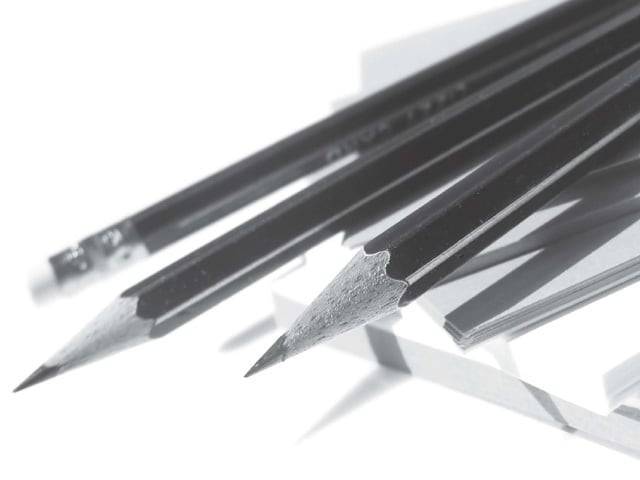Misplaced priorities: Salaries to take up lion’s share of education budget, again
Over 99,000 teachers promoted under the new time-scale promotion policy.

Amid high expectations from the Sindh government to get its priorities right in the face of the prevailing education crisis, the time-scale promotion policy reform announced by the education department on Tuesday is being seen by many as a measure to maintain the status quo.
Sindh chief minister Syed Qaim Ali Shah has approved the revised time-scale that will lead to increased salaries and perks for around 99,000 primary schoolteachers, who are otherwise in dire need of qualitative training owing to the dysfunctional government-run teacher training projects.

The education department's budget estimates for the fiscal year, 2014-15 reveal that the provincial government, with another 10% increase in salaries across the board, will spend a massive 75% of its 134.3 billion education budget on salaries of teaching and non-teaching staff. Meanwhile, the development budget in the fiscal year, 2014-15, has been reduced to around Rs10.7 billion - a decrease of around 21% from last year's annual development plan of Rs13.4 billion.
"Increasing the salaries of teachers, who are already relatively well-compensated, while cutting money for development projects makes sense only in an absurd context," said Mosharraf Zaidi, the campaign director of Alif Ailaan - a Pakistani alliance for education reform.
It is only around a month ago when the chief minister, in his budget speech, proudly stated that the non-salary expenditure on education will witness a significant increase of 25% compared to the outgoing year's budget. "The non-salary budget will now comprise around 25% of the total non-development budget for education as compared to 21% in the outgoing year," he had said.
Now, however, he has signed the directive that will unmistakably invalidate his own words.
This time-scale revision, stated the July 21 notification, will allow the incentive of higher grades to those primary school teachers who were recruited initially in BS-9, having a qualification of HSSC in second division. The directives will be implemented with effect from November 28, 2011.
The earlier time-scale policy, allowed primary schoolteachers to be promoted to a total of four pay scales according to their service seniority, namely BS-9 to 10 after nine years, BS-10 to 12 after 14 years, BS-12 to 14 after 21 years and BS-14 to 15 after 21 years. This has been desirably softened, explained Sikandar Jatoi, vice president of the All Sindh Primary Schoolteachers Association.
"The primary schoolteachers have now been declared eligible for promotions from BS-9 to 12 after nine years of service, BS-12 to 14 after 14 years, BS-14 to 15 after 21 years and BS-15 to 16 after 25 years," he added.
"We are not against the increase in teachers' salaries, but currently when they are getting better salaries as compared to teachers at most of the private schools, such backdoor decisions that are made out of the bloom are largely political," said Baela Raza Jamil, programmes director at Idara-e-Taleem-o-Aagahi and one of the brains behind the Annual Status of Education Report in Pakistan. "It shows that the government has yet to get its priorities right."
For Jamil, more serious issues at hand were the teachers' training and single-teacher schools that make up around half of the 43,000 public primary schools in Sindh.
"The government must shift its focus towards the qualitative and infrastructural improvement of the public education system that is on the verge of collapse," she stressed. "The Sindh Teachers Education Development Authority now appears to be a defunct body and similar is the condition of other provincial institutes of teachers' education."
Published in The Express Tribune, July 24th, 2014.



















COMMENTS
Comments are moderated and generally will be posted if they are on-topic and not abusive.
For more information, please see our Comments FAQ